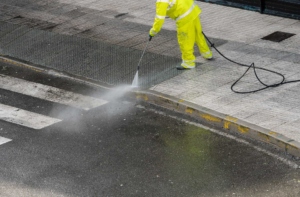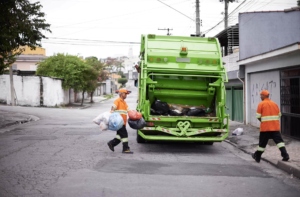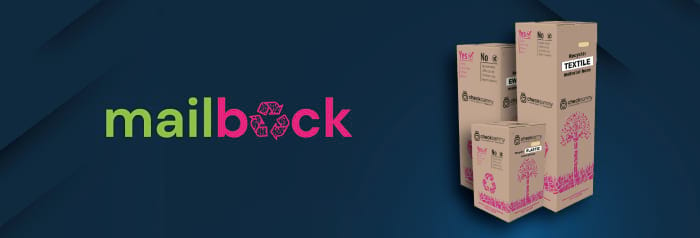Why You Need an External Waste Audit for Your Recycling Program
Whether you’re just getting started with sustainability initiatives or you already have a recycling program in place, a waste audit can play an important role in ensuring your organization is handling its waste responsibly. After all, when you invest in a recycling program, you want to know it’s working properly.
What is a Waste Audit?
A waste management audit helps determine the effectiveness of your recycling program. Different waste audit providers have different methodologies, but the goal is always the same: to analyze your organization’s waste stream. It’s a sophisticated, data-driven dumpster dive that looks at what and how much you’re throwing away and what’s being recycled and diverted.
But why does knowing this matter?
The Importance of a Waste Audit
Incredibly, 80% of what goes into the waste stream is recyclable, and the largest portion of that is organic food waste. On average, 76% of recyclables are thrown in the trash.
Waste audits provide several advantages to organizations, including:
- A clear picture of the effectiveness of your current waste operations. With a waste stream audit, you’re able to uncover your waste management’s overall efficiency. Your team can identify what’s working and what isn’t and find problems or confirm successes.
- An idea of where and how to save money in waste costs. When you perform a waste audit, you can see if you’re overspending in waste costs. For example, if the waste audit shows the majority of your company’s trash is food, you can set up an organics recycling program to cut back on unnecessary waste and hauling costs.
Through a waste management audit, one of our customers, a large food chain, discovered 40% of their waste was unused flour. They realized they could order less flour and produce less waste, saving them substantial money in the long run.
Regular waste audits also prevent fines, like when AT&T was fined $23.8 million, and Comcast was fined $28 million for disposing of hazardous wastes improperly. So, for the C-Suite executives who may need some convincing, waste audits are helpful to the bottom line, too.
- Determine the best place for your recycling bins. A waste audit can help you figure out where you should put your bins for maximum recycling efficiency. The data might show that people use bins in some areas but not others. It might also highlight that more education or signage is necessary to get your staff on board.
- Verifiable data to measure success and prevent “greenwashing.” The reality is that you don’t really know what is or isn’t happening in your waste stream until you verify it. Waste audits give you verifiable data to measure your company’s sustainability program successes or highlight where you can improve.
- Help meet compliance and certification standards. Most companies and municipalities need to show their sustainability program is effective for their ESG score. Other organizations need it for LEED or other certifications. In some cases, like in California, you’re mandated to perform waste management audits for two years if you’re caught breaking a waste ordinance. Additionally, you must prove you’re taking the waste audits seriously through program alterations.
So, how do you get started with a waste stream audit?
Your Options for a Waste Management Audit
Traditionally, the waste audit process has been expensive and cumbersome. In the past, there were two main types of audits. For the first type, an audit company comes to your location and removes materials from your waste containers, which they then sort through and generate a report based on their findings. These have traditionally been a very expensive option for most locations. Since most waste audit groups are not in every market, expenses like travel get added to the final cost. A second popular option is placing sensors and cameras on every container. (This can be costly if you have a lot of dumpsters.) Then, you sign a 36-month contract to get started, and the company tracks your waste for 36 months.
But, if in that time, the audit proves you don’t have a problem, or you’re able to correct any issues within a few months, you still have to pay for the full three-year commitment. This is incredibly cost-prohibitive, and for most organizations, it’s overkill.
As a result, many organizations have opted to forego the waste audit altogether. That isn’t the best course of action either because, without a waste audit, you have no tracking, no data, and no process for validating your recycling program.
The answer isn’t to skip the waste stream audit but instead to find one that works for your budget and goals.
At CheckSammy, we offer a meet-in-the middle option. We can come in quarterly, bi-annually, or annually to audit your recycling program without requiring sensors and cameras on your dumpsters. Because of our extensive national network, we don’t have the high overhead of travel expenses that most audits come with. Our waste audit prices are straightforward, with no hidden fees – ever. Plus, our granular reporting provides actionable insights to improve your process without breaking the bank.
Contact us today to get started.
See Our Services
Create a custom solution to meet your waste and sustainability goals. Contact us today!
Continue reading
Dive deeper into the CheckSammy Blog by reading one of our posts below
Feeling the Pain of Higher Resident Turnover? Apartment Junk Removal Can Help
If you’re a property manager, you’ve probably had a significant increase in tenant turnover over the last couple of years. So it’s no wonder apartment junk removal may be top of mind for you right now. There are several reasons for this shift. For one, the housing market is on fire right now. In 2020 […]
Read More About Feeling the Pain of Higher Resident Turnover? Apartment Junk Removal Can HelpSetting Up a Community E-waste Recycling Program
E-waste is the fastest-growing municipal waste stream according to the EPA, yet e-waste recycling isn’t keeping pace. In fact, only 12.5% of all e-waste is recycled, reports the EPA. Starting a community e-waste recycling program is a terrific way to ensure hazardous e-waste, like lithium-ion batteries, doesn’t end up in your community’s landfill. Creating an […]
Read More About Setting Up a Community E-waste Recycling ProgramWaste Management’s Role in the Circular Economy
Establishing a waste management program for your business or community is one of the best ways you can contribute to the circular economy. Here’s everything you need to know about waste management’s role in the circular economy (and how to get involved). What Is the Circular Economy? Our current economic model is all about taking […]
Read More About Waste Management’s Role in the Circular Economy5 Reasons to Consider a Textile Recycling Program for Your Organization
Americans sent more than 17 million tons of textiles to landfills in 2018, a volume that is only increasing every year, reports the Environmental Protection Agency. When you think about the fact that it can take over 200 years for textiles to decompose, it’s easy to grasp how large textile waste’s contribution is to the […]
Read More About 5 Reasons to Consider a Textile Recycling Program for Your Organization8 Benefits of Environmentally Friendly Power Washing Services
If you’re into maintaining the curb appeal of your business or home, then you’ve probably heard of pressure washing. Pressure cleaning involves using high-pressure water spray to remove grime, mold, dust, paint, mud, and other junk from objects or surfaces. Many people worry that pressure washing isn’t good for the environment, but this couldn’t be […]
Read More About 8 Benefits of Environmentally Friendly Power Washing ServicesWhy Our Customers Love Our Full-Service Junk Removal
If you’re looking for full-service junk removal services, you’ve come to the right place. CheckSammy is a one-stop shop for all your junk removal and sustainability needs. From our affordability, simplicity, and unrivaled turnaround times to our innovative sustainability solutions and patented technology and data, it’s clear why some of North America’s biggest companies choose […]
Read More About Why Our Customers Love Our Full-Service Junk RemovalTips for a Stress-Free Move From An Eco-Friendly Junk Removal Company
What does an eco-friendly junk removal company know about moving? Quite a lot, actually. Moving can be an especially chaotic time. You have to pack everything up, get rid of unwanted items, clean your property, load everything up, and move your things to your new location. That doesn’t even include the unpacking and resettling period. […]
Read More About Tips for a Stress-Free Move From An Eco-Friendly Junk Removal CompanyCollege Junk Removal Tips for Student Move-In Day
As the new school year gears up, colleges across the country are looking for ways to clean up their campuses before the new year begins, and many of them want to do so sustainably. College junk removal isn’t easy, though, especially around move-in week—and when trying to do so sustainably. As students move in and […]
Read More About College Junk Removal Tips for Student Move-In Day8 Items Hospitality Businesses May Not Know They Can Recycle
One hotel guest produces 2.5 pounds of trash every single day. Just a single hotel room produces around one cubic yard of waste each month, which totals 200 gallons of waste per room every month. Most of this waste goes straight to the landfill, even though research shows that up to 60% of it is […]
Read More About 8 Items Hospitality Businesses May Not Know They Can Recycle












